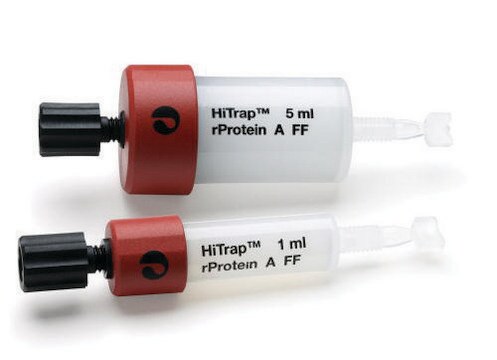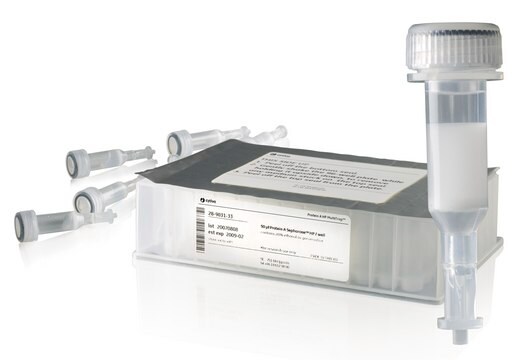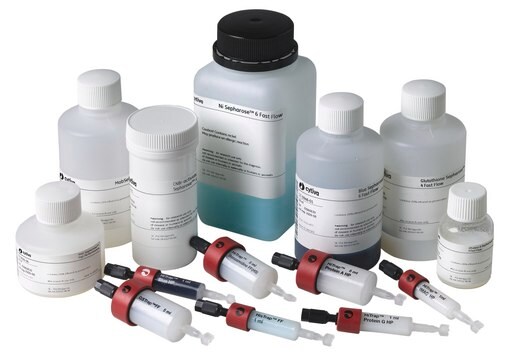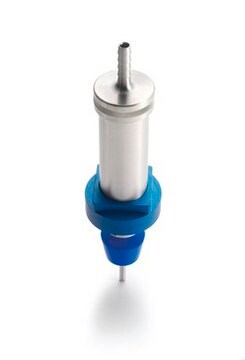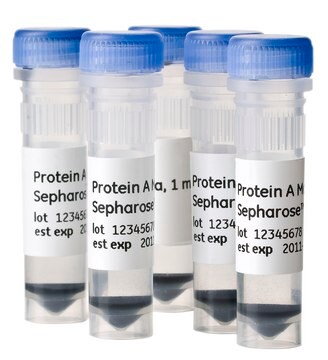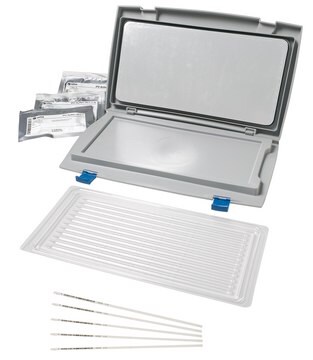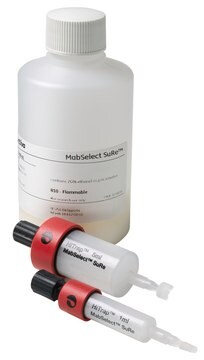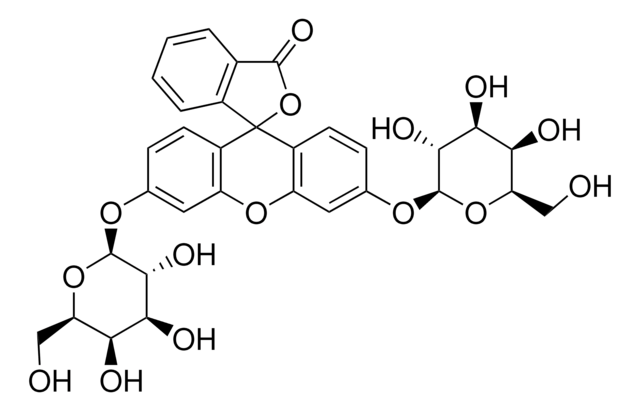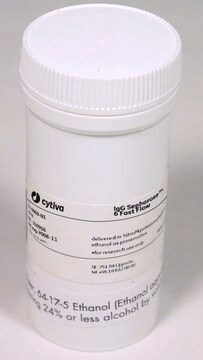GE17-5079-01
HiTrap® rprotein A Fast Flow
Cytiva 17-5079-01, pack of 5 × 1 mL
About This Item
Recommended Products
ligand
recombinant protein A (E. coli)
packaging
pack of 5 × 1 mL
manufacturer/tradename
Cytiva 17-5079-01
storage condition
(20% Ehtanol)
(20% Ethanol)
parameter
<4 mL/min flow rate
42 psi
bed size
7 mm × 25 mm
bed volume
1 mL
column I.D.
7 mm
matrix
4% cross-linked agarose
particle size
60-165 μm
average diameter
90 μm (d50v)
cleaning
2-11
working range
3-10
capacity
~50 mg binding capacity (human lgG/ml medium)
suitability
suitable for bioprocess medium
storage temp.
2-8°C
General description
The recombinant protein A ligand (produced in E. coli) is coupled to Sepharose™ Fast Flow by a technique which generates a stable thioether linkage between rProtein A and the base matrix. The coupling technique is optimized to give high binding capacity for IgG.
Features and Benefits
- Quick, convenient preparative purification of monoclonal antibodies.
- Well-established protein A-based medium used in many approved MAb processes.
- Recombinant protein A exhibits similar Fc region specificity to that of native protein A but shows enhanced binding capacity and fewer regulatory concerns due to the total absence of mammalian culture in the ligand production and purification.
- Simple operations with a syringe, pump, or high-performance chromatography system, such as AKTA design.
Storage and Stability
Analysis Note
Other Notes
Legal Information
related product
Signal Word
Warning
Hazard Statements
Precautionary Statements
Storage Class Code
3 - Flammable liquids
Certificates of Analysis (COA)
Search for Certificates of Analysis (COA) by entering the products Lot/Batch Number. Lot and Batch Numbers can be found on a product’s label following the words ‘Lot’ or ‘Batch’.
Already Own This Product?
Find documentation for the products that you have recently purchased in the Document Library.
Customers Also Viewed
Articles
This page shows how to purify IgM antibodies by affinity chromatography using HiTrap IgM Purification HP from GE Healthcare.
This page shows how to separate IgG antibodies by affinity chromatography using HiTrap® Protein G HP columns from GE Healthcare.
This page shows various purification options for Protein A Sepharose chromatography media and describes typical binding and elution conditions for Protein A Sepharose chromatography media.
This page shows how to solve practical problems that may occur when running an affinity chromatography column.
Protocols
Protein A is derived from a strain of Staphylococcus aureus and contains five regions that bind to the Fc region of IgG. As an affinity ligand, protein A is coupled to Sepharose so that these regions are free to bind IgG.
This page shows how to convert between linear flow and volumetric flow rates in affinity chromatography.
This page shows how to perform column packing and preparation for affinity chromatography when using Tricorn™ or XK columns available from GE Healthcare.
This page shows how to prepare samples for purification with affinity chromatography.
Our team of scientists has experience in all areas of research including Life Science, Material Science, Chemical Synthesis, Chromatography, Analytical and many others.
Contact Technical Service
